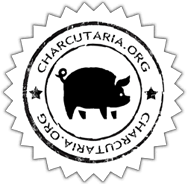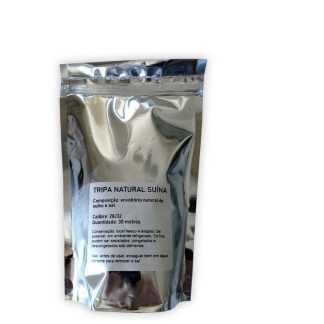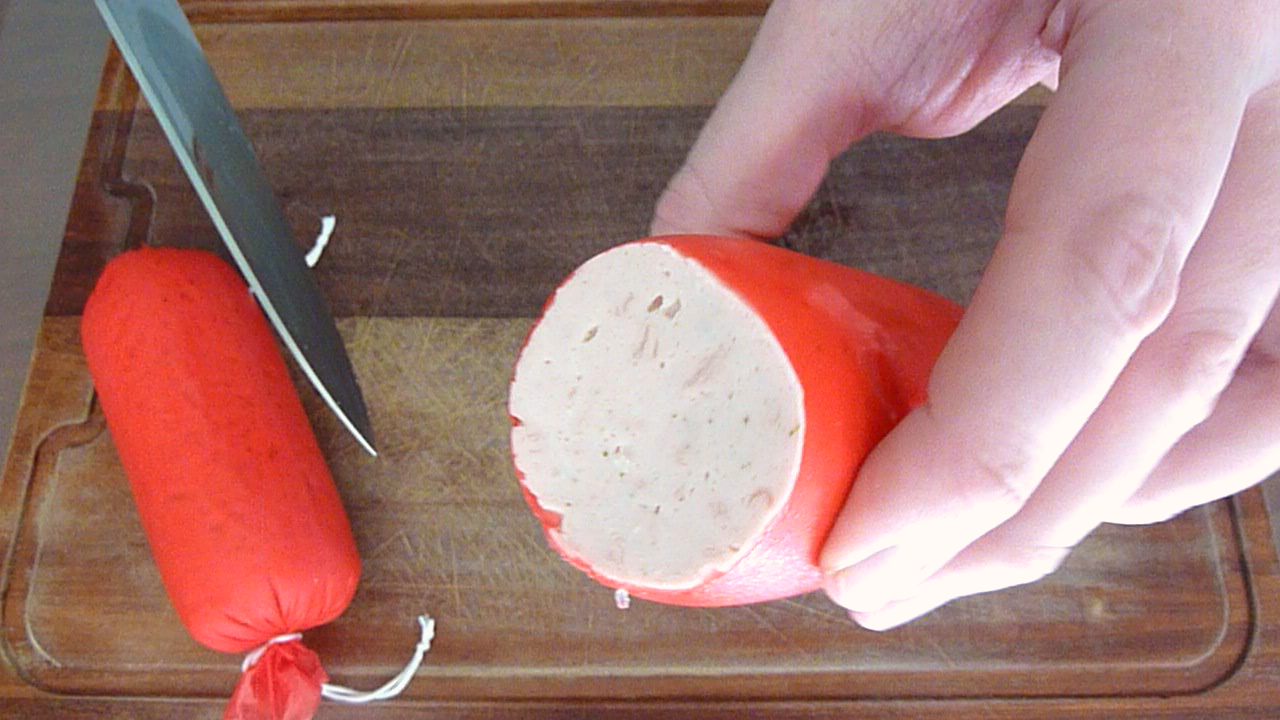
O que é uma emulsão cárnea?
A emulsão cárnea é uma estrutura composta de água, gordura, carne cominuída(finamente cortada), sal, fosfato, podendo incluir, também, outros produtos de origem animal e/ou vegetal, como leite em pó, soro de leite, caseinato de sódio e/ou de potássio, derivados da soja (isolado, concentrado ou farinha), plasma sanguíneo, amidos de cereais, féculas, entre outros. A emulsão é um complexo com uma fase descontínua (gordura), uma fase contínua (água) e um agente emulsivo (proteína). As partículas de gordura ficam suspensas em uma matriz aquosa que é presa por proteínas solúveis (principalmente actina, miosina e mioglobina) e na qual a estabilização final é conseguida por meio da formação de géis.
O parâmetro que deve ser levado em consideração é a estabilidade dessa emulsão, deve ser mantida durante todas as etapas do processamento. Listamos abaixo os fatores influenciam a estabilidade da emulsão.
Qualidade das matérias-primas na emulsão cárnea
A carne, como um dos principais componentes, pode ser utilizada logo após o abate (antes do período de rigor mortis, tem mais capacidade emulsificante do que na fase pós-rigor mortis). Isso se deve ao fato de que, na fase inicial de transformação do músculo em carne, a miosina (proteína contrátil) está mais disponível, proporcionando melhores capacidades de ligação e estabilização, algo que é perdido quando o complexo actomiosina é formado.
Formulação da emulsão cárnea
Para garantir que a propriedade de equilíbrio em uma emulsão cárnea seja obtida, é crucial estipular a proporção adequada dos componentes. Água, carne, gordura(entre 15% e 20%), sal(de 1,5% a 2%) e fosfatos(nos limites da norma em vigor). A massa obtida será considerada um sistema coloidal, que, em função das concentrações nas quais foram utilizados os ingredientes, gerará um certo grau de estabilidade, o qual pode ser acentuado ou não com o uso de outros elementos, como, por exemplo, proteínas não cárneas(de soja e/ou de leite).
Temperatura na emulsão cárnea
Se a temperatura da emulsão cárnea exceder os 15°C durante ou após a etapa de moagem da carne, esta se romperá, ocasionando os seguintes efeitos:
- diminuição da estabilidade à medida que se diminui a viscosidade;
- agrupamento das gotas de gordura, que tende a aumentar seu tamanho;
- desnaturação das proteínas e redução de sua capacidade emulsionante.
Temperatura ideal para a emulsão cárnea
- entre 8°C e 13°C para emulsões de carne suína;
- entre 9°C e 12°C para misturas com carne de frango;
- entre 4°C e 7°C para dispersões nas quais se utilize carne bovina, com a finalidade de evitar alterações nas características tecnológicas, sensoriais, nutricionais e quanto à inocuidade.
pH na emulsão cárnea
o pH afeta a estabilidade da emulsão cárnea devido ao seu efeito sobre as proteínas, as quais alcançam sua capacidade máxima de emulsificação quando o pH está em torno da neutralidade. Levando em conta a variação normal de pH dos produtos cárneos (5,8 a 6,2), a capacidade emulsionante das proteínas da carne pode aumentar com o uso de alguns sais, sejam eles utilizados separadamente ou em combinação, melhorando, assim, sua eficiência.
Viscosidade na emulsão cárnea
A resistência da emulsão cárnea a fluir está relacionada com a capacidade de retenção de água(CRA), com o ponto isoelétrico(pl) das proteínas, a concentração de sal utilizada e a quantidade de água acrescida. É importante mencionar que a água é um dos componentes mais importantes no processo de emulsificação pois atua como solvente do cloreto de sódio, algo necessário para solubilizar as proteínas.
Equipamento utilizado na emulsão cárnea
Na obtenção de emulsões cárneas estáveis o tipo de maquinário a ser utilizado é um fator relevante, proporcionando a ação mecânica necessária para cortar e misturar com eficiência os diferentes componentes. É necessário obter a redução do tamanho das partículas da fase interna (gordura) para poder dispersá-la sem problemas na fase contínua (água em solução com sais e proteína cárnea) e ter como resultado uma massa fina, homogênea. Um equipmanento eficiênte permite reduzir o tempo de processamento, gerando menos calor e mantendo a capacidade de redução máxima das partículas durante o processo.
-
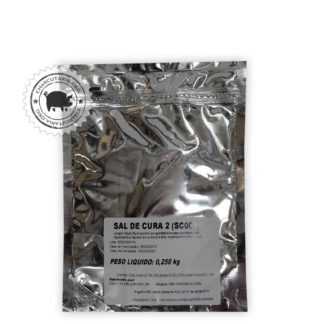 Sal de cura 2R$ 8,00
Sal de cura 2R$ 8,00 -
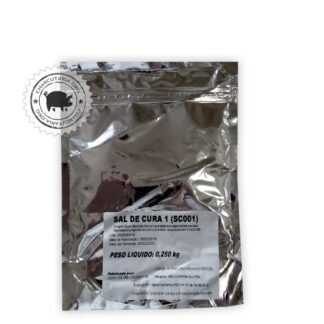 Sal de cura 1R$ 8,00
Sal de cura 1R$ 8,00 -
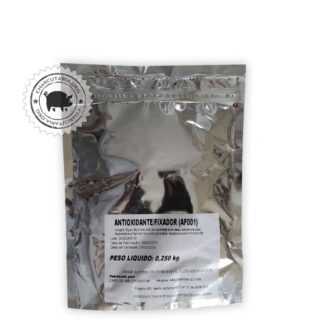 Antioxidante FixadorR$ 23,00
Antioxidante FixadorR$ 23,00 -
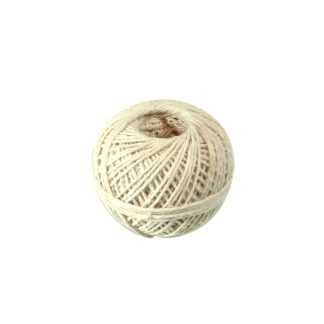 Barbante culinárioR$ 7,90
Barbante culinárioR$ 7,90 -
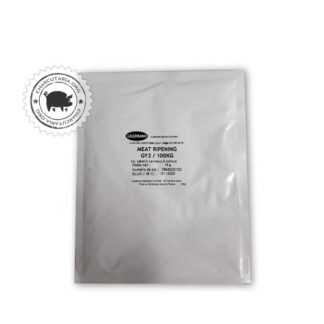 Cultura StarterO preço original era: R$ 69,90.R$ 59,90O preço atual é: R$ 59,90.
Cultura StarterO preço original era: R$ 69,90.R$ 59,90O preço atual é: R$ 59,90. -
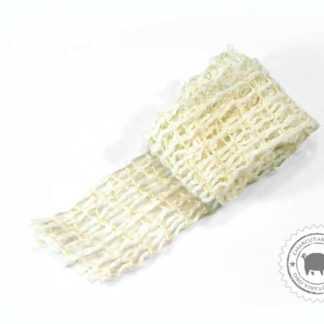 Rede elástica culinária 50mmR$ 15,00
Rede elástica culinária 50mmR$ 15,00 -
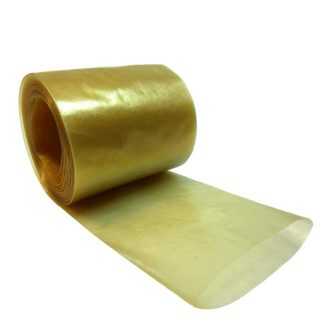 Tripa de colágeno 45mm rolo 5 metros salameR$ 25,00
Tripa de colágeno 45mm rolo 5 metros salameR$ 25,00 -
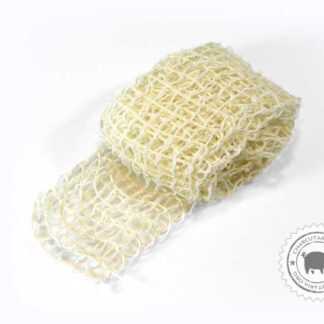 Rede elástica culinária 65mmR$ 18,00
Rede elástica culinária 65mmR$ 18,00 -
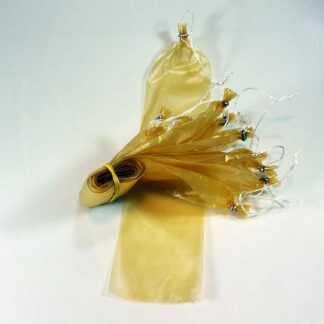 Tripa de colágeno salame 45mm 10 unidades amarradasR$ 22,00
Tripa de colágeno salame 45mm 10 unidades amarradasR$ 22,00 -
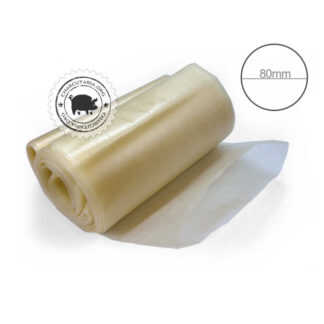 Tripa de colágeno 80mm copa e salameR$ 29,90
Tripa de colágeno 80mm copa e salameR$ 29,90 -
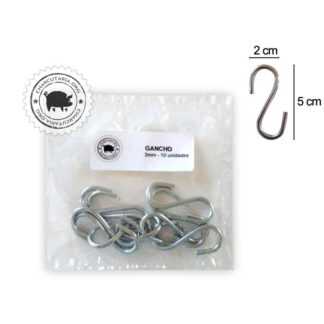 Gancho GalvanizadoR$ 12,00
Gancho GalvanizadoR$ 12,00 -
 Tripa de colágeno salame 50mm 10 unidades amarradasR$ 24,00
Tripa de colágeno salame 50mm 10 unidades amarradasR$ 24,00
